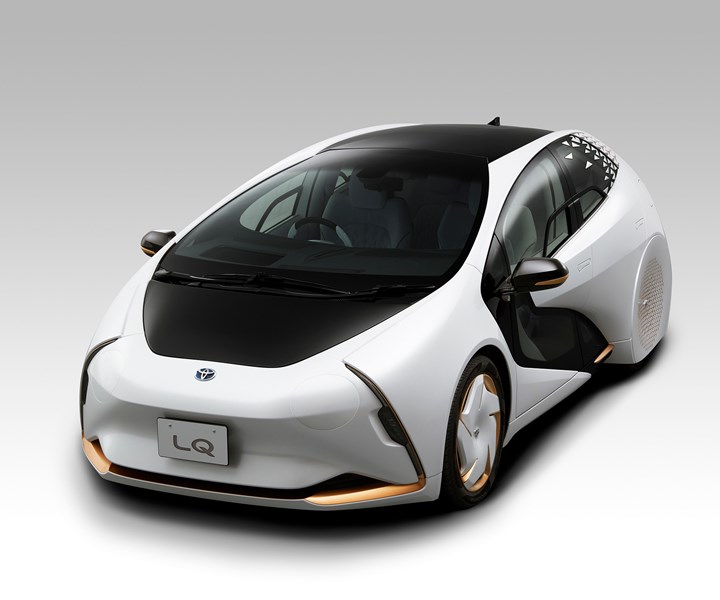Covestro provides sustainable composite material for Toyota electric concept car
Components of the Toyota LQ will be made from a new kenaf fiber-reinforced polyurethane foam composite material.

The Toyota LQ is a concept electric vehicle. Source | Covestro
Material solutions provider Covestro (Leverkusen, Germany) reported on Feb. 26 that it has been chosen by Toyota Boshoku Corp. (a car component manufacturer of the Toyota Group) to jointly develop a new polyurethane composite material for use on the Toyota Motor Corp.’s electric concept car LQ.
The lightweight, sustainable material is based on a combination of Covestro’s advanced Baypreg F NF technology and Toyota Boshoku’s expertise in using kenaf fibers. This new kenaf fiber-reinforced polyurethane foam composite material will be used on the LQ’s door trims.
Kenaf is a member of the hibiscus genus and is growing in regions such as Southeast Asia, Bangladesh, India and Africa. The fiber is obtained from bast fibers of the kenaf plant and has recently attracted increasing attention as a cost-effective raw material with good mechanical properties, Covestro says. In the automotive industry, the plant fiber is also said to be attracting increasing interest as an alternative raw material.
Covestro and Toyota Boshoku’s kenaf fiber-reinforced polyurethane foam composite is characterized by a very low area density of less than 1 kilogram per square meter, as well as high strength. The door trim made from this material is said to be 30% lighter than that produced from conventional materials. Lightweight materials also enable the car to travel farther on a single gas or battery charge.
The new composite material was developed in close cooperation between
Toyota Boshoku and Covestro's recently renovated Japanese Innovation Center.
“Our joint development makes an important contribution to the design of
particularly lightweight and sustainable vehicles,” says Hiroaki Ido, head of
Polyurethanes Application Development for Transportation at Covestro’s
Japanese Innovation Center. “It is also a good example of our company’s focus
on using alternative raw materials and establishing a circular economy.”
Related Content
-
Cryo-compressed hydrogen, the best solution for storage and refueling stations?
Cryomotive’s CRYOGAS solution claims the highest storage density, lowest refueling cost and widest operating range without H2 losses while using one-fifth the carbon fiber required in compressed gas tanks.
-
Syensqo becomes new Solvay specialty materials company
Syensqo represents what was Solvay Composite Materials, focused on delivering disruptive material technologies and supporting growing customer needs.
-
Sinonus launches energy-storing carbon fiber
Swedish deep-tech startup Sinonus is launching an energy-storing composite material to produce efficient structural batteries, IoT devices, drones, computers, larger vehicles and airplanes.

.jpg;width=70;height=70;mode=crop)














